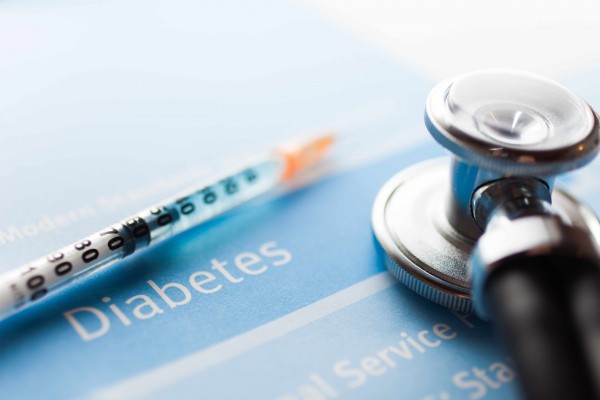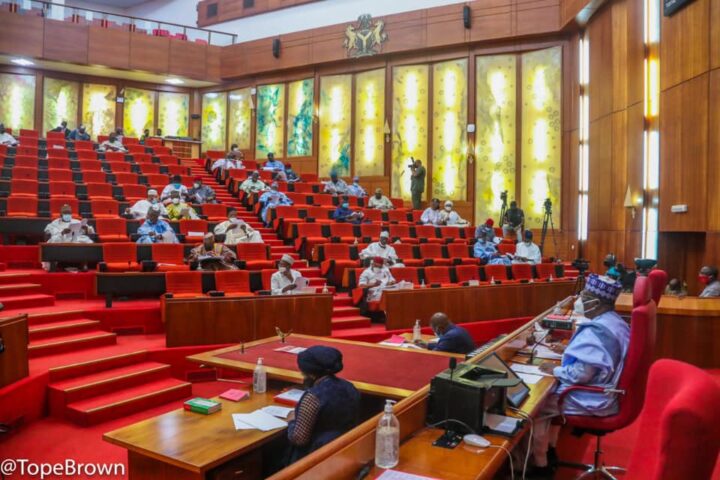BY LIVEWELL CLUB
As April ushers in the start of the holy month of Ramadan, the ninth month of the Islamic lunar calendar, it is imperative that we consider the health implications of abstinence from both food and drink for worshipers with diabetes.
Ramadan is considered a sacred season; a time for quiet reflection, purification and self-discipline, with adult Muslims fasting from early dawn till sunset. Although there is much-anticipated excitement for the blessings that come with Ramadan, there is also a need for Muslims living with diabetes to have the right information to help them effectively navigate the season, if fasting.
If you do choose to fast as a diabetic in the holy month of Ramadan, you shouldn’t have to also choose between your spiritual health and physical health. In this article, you will take away a few key tips to help you properly manage your health while not losing the spiritual benefits of fasting in this season.
Advertisement
Should You Fast?
Most Muslims around the world fast during the holy season of Ramadan, as it is an essential part of their spiritual lives. Majority of people can do it without any problem, however, this is not true for those who live with diabetes. So, what do you need to consider when deciding if to fast, so as not to jeopardize your wellbeing or face any health problems?
- Diabetes type: If you have been diagnosed with Type 1 diabetes, it is especially important that you are aware that there are various risk factors associated with fasting; exacerbated by the fact that you are on insulin. You are at risk of hypoglycemia or hypo (excessively low blood glucose) if you don’t cut back enough on insulin, and hyperglycemia (excessively high blood glucose), if you stop taking medication. These health issues, alongside dehydration, blood clots and diabetic ketoacidosis (a buildup of ‘ketones’ resulting from high blood glucose levels), are higher in people with type 1 diabetes compared to those with type 2 diabetes.
- Overall state of health: It is safer for you to fast if you otherwise maintain healthy practices, and you practice good diabetes management. If you eat well, exercise regularly, maintain a good blood glucose level, and do not experience any health complications, it should be fine. Do not put your health at risk by fasting. If you do not manage the condition well or have complications associated with diabetes, such as heart disease, kidney disease or visual problems, the risk of these issues becoming worse during the fast is high, and so you should consider not fasting.
- Doctor’s recommendation: Consult your healthcare provider and diabetes team to know if it is safe for you to fast and learn of any potential risks associated with fasting. Please note that each diabetes case is different, and so you should take preventive measures according to your needs.
Tips to help you fast safely
Fasting during Ramadan can be accomplished without causing harm to your health. If you have no health complications and are in the clear with your health care team, please take note of the following health and lifestyle management tips:
Carry your health care provider along
Advertisement
Your healthcare team can also advise you on how to keep good diabetes control. Ensure to discuss monitoring and how to handle emergencies should they arise, and have them suggest any Ramadan-specific changes in your diet, lifestyle, dose and timing of your medication or insulin regime.
Monitor your blood glucose
It is advisable that you do even more frequent glucose monitoring than usual when fasting until you get a sense of the safety of your revised insulin regimen. If you feel dehydrated or unwell at any time during your fast, or if your blood sugar goes below 70 mg/dL or above 300 mg/dL (or the targets recommended by your doctor), check your BGL and be prepared to break the fast to treat a hypo – or manage hyperglycemia. The Diabetes and Ramadan International Alliance confirm that pricking the skin for blood glucose testing does not invalidate the fast.
Eat & drink healthy
Advertisement
During the month of Ramadan, your eating pattern will be affected by long gaps between meals and feasting after iftar which can lead to greater swings in blood glucose levels. Good nutrition is particularly important at this time and maintaining a healthy eating plan will help you avoid overeating carbohydrates and fatty foods at the sunset meal. Include more slowly absorbed foods that have a lower glycaemic index, and try not to have too many sugary and fatty foods. Also, have a plan for when to take your diabetes medicine, as well as how much, as discussed with your healthcare team.
Never skip the pre-dawn meal
The suhoor meal, which is eaten shortly before dawn, is too essential for you to skip; it should be the largest meal of the day to give you sustained energy. This meal is advised to be high in strong fibre, whole grain and complex carbohydrates (such as oats, sourdough bread, couscous and brown rice) because they are digested more slowly than other types of starchy meals.
To have a balanced diet, meals high in strong fibre are to be paired with foods high in protein (lean meat, poultry, fish, eggs, dairy products, seeds, nuts, beans, legumes and tofu) and balanced with a combination of fruits and vegetables. Food supplements are also welcome.
Advertisement
Stay hydrated
Make sure you drink plenty of fluids – try to drink two cups of sugar-free and decaffeinated fluids every hour to remain hydrated, with a target of at least 2L between sundown and sunrise. Also, choose fluid-rich foods (vegetables, such as cucumbers, green peppers and tomatoes, and fruits such as watermelon and strawberries) to make sure you are well hydrated for the day.
When breaking your fast (iftar)
Advertisement
Break your fast with a ‘sunset snack’ of one to two dates and a cup of water. Three dates are equal to 15g of carbohydrates. This will provide an instant boost of energy and hydration to help settle your hunger and prevent overeating at the start of your main meal. Drink plenty of water after Iftar, and go for a walk when you have had a chance to digest your meal.
Eat slowly and chew food well
Advertisement
Use the healthy plate model as a reminder: a quarter of your plate should be complex low GI carbohydrates such as low GI rice or sweet potato, another quarter should be lean meat, skinless chicken, egg, fish or tofu; the final half of your plate should be vegetables or salad.
Snack right
Advertisement
Two hours after the dinner meal, it is normal to feel hungry. Have a healthy snack to avoid overeating. Avoid sugary foods as they don’t provide you with sustainable energy. Fried foods may also make you feel sluggish. Some healthy choices include 1-2 pieces of fresh fruit, 100-200g of low-fat yoghurt, 1-2 cups unsalted popcorn, or a handful of plain raw unsalted nuts.
Physical activity
You can continue to do your normal physical activity. However, excessive physical activity should be avoided as this can increase your risk of hypoglycaemia, particularly during the few hours before the sunset meal.
Don’t exhaust yourself!
You must ensure Taraweeh (multiple prayers performed after the sunset meal which involves repeated cycles of rising, kneeling, and bowing) should be considered a part of the daily exercise program. Taraweeh can be a tiring activity and you could become dehydrated or be at risk of hypos.
Make sure you:
– Eat starchy foods with iftar as they are digested slowly
– Drink plenty of water following iftar
– Take a bottle of water and glucose with you to taraweeh.
Study your symptoms
If you experience the symptoms of a hypo, such as feeling shaky, sweaty and disoriented, you must break the fast immediately and treat it with your usual hypo treatment, like a sugary drink, followed by a snack or a bowl of cereal. If you are feeling very thirsty, passing a lot of urine or extreme tiredness or if your blood glucose levels stay very high or low, you may need to speak to your healthcare team.
As you commence this Ramadan season, remember that the decision to fast during this Ramadan lies solely with you and the advice of your healthcare team. Plan carefully and talk about whether it’s advisable for you to fast. If you are unable or choose not to fast because of diabetes or other health reasons, you can still observe and benefit from the season’s blessings. Discuss with your Imam and consider making a “fidya” payment for each of the days missed. Ramadan Kareem!
This article was written by LiveWell Club, a wellness community where Nigerians living with diabetes can gain practical knowledge and share experiences that support their treatment, diet and lifestyle changes.
LiveWell Club can be found on;
WhatsApp: Click to Join
Instagram: Click to Follow
LinkedIn: Click to Follow
Facebook: Click to Follow
Views expressed by contributors are strictly personal and not of TheCable.
Add a comment






